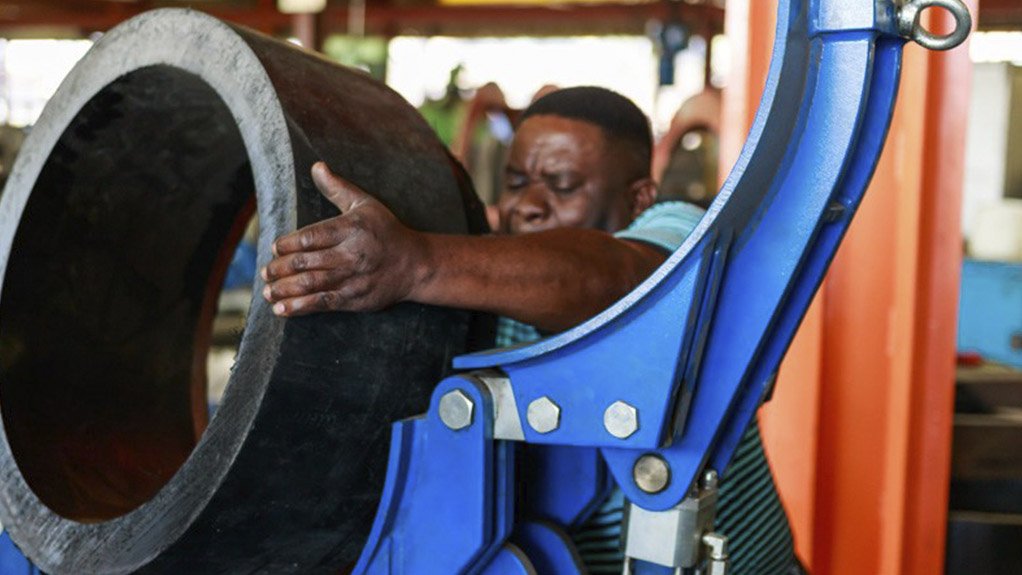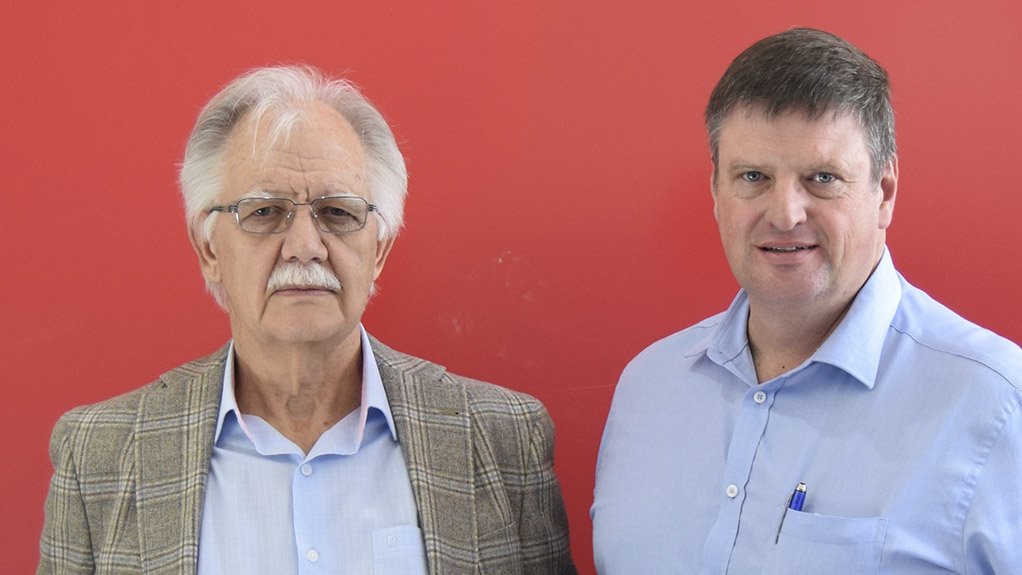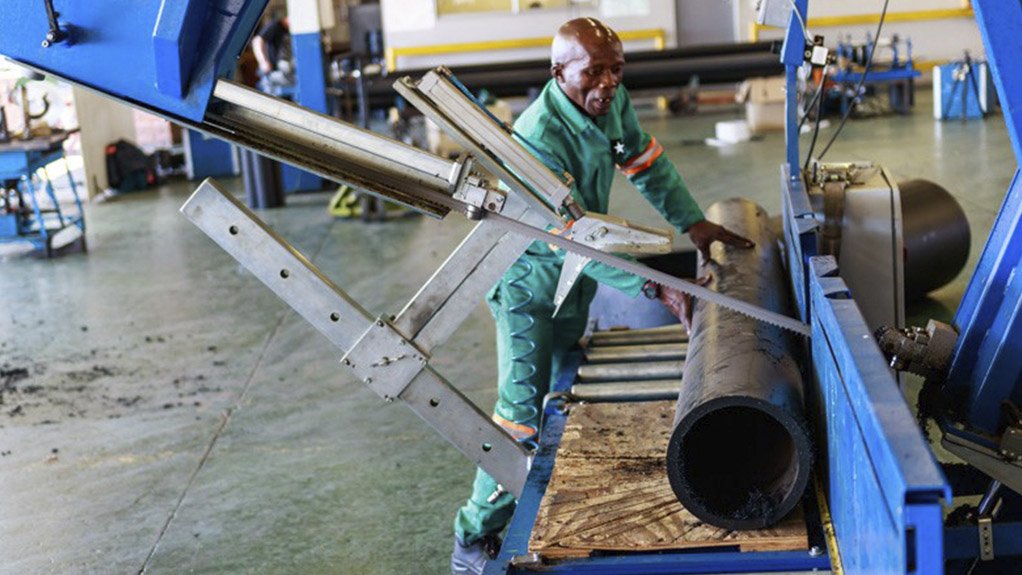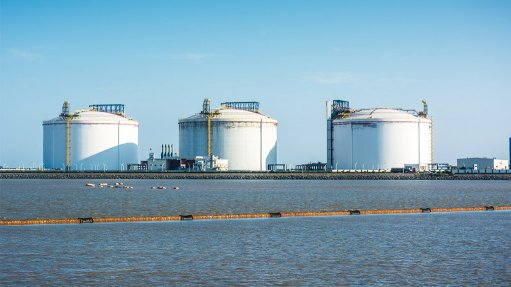High standards a key step in improving the competitiveness of SA's plastics pipe sector
This article has been supplied as a media statement and is not written by Creamer Media. It may be available only for a limited time on this website.
The Southern African Plastic Pipe Manufacturers Association (SAPPMA) has highlighted the importance of adhering to local and international standards as one of the key ingredients to improving the competitiveness of the local plastic pipe industry.
Earlier this year, the merSETA Plastics Chamber released the findings of a study it had conducted with Plastics|SA that aimed to identify the biggest challenges being faced by a hugely challenged plastic pipe manufacturing sector. It also hoped to make recommendations that would aid its growth and strengthening.
Jan Venter, Chief Executive Officer of SAPPMA said the pipes body welcomed this study and worked closely with the researchers to make as much information as possible available to them in order to facilitate the project.
“The results of the merSETA study have certainly highlighted aspects in the pipe sector that require attention or need improvement. One overarching factor was the issue of continued weak demand which resulted in inadequate capital expenditure and lack of research and development. However, we remain resolute in our belief that adherence to international and local standards remain a key ingredient to ensure the survival, success and growth of this important sector,” Venter said.
SAPPMA was launched in 2004 to represent the interests of the well-developed plastic pipe business in South Africa and surrounding countries. Today, this voluntary, self-regulating association represents more than 80 percent of the country’s plastic pipe manufacturers. Its primary objective is to create consumer confidence within the plastic pipe industry by promoting the production and use of high quality plastic pipes and pipes systems. Only plastic pipes manufactured by members who have committed to abide by the Association’s Code of Conduct, which includes agreeing to be audited independently and unannounced, are allowed to display the SAPPMA logo as proof that they meet local and international quality standards.
Taking short-cuts on quality cause long term harm
“Piping systems is one of the key elements of a country’s infrastructure. Communities rely on the pipes our members provide for their water, sewage, telecommunication and gas supply. Similarly, a wide spectrum of industries, such as mining, agriculture, telecommunication, building and construction need pipelines they can trust not to fail as the cost of disruption and repairs is prohibitive. When produced according to the standards specified and tested by SAPPMA, we know that plastic pipes will last for fifty to a hundred years before they need to be replaced. Unfortunately, we have seen a growing number of players in the industry unwilling to meet our criteria for the sake of cutting costs or taking shortcuts. We are receiving more and more reports of pipes that are underweight or shorter in length that are entering the market. Companies that are guilty of using substandard procedures, skipping certain quality tests or including recycled materials are causing irreparable harm to the reputation and longevity of our industry and will not be awarded membership to SAPPMA,” Venter stresses.
Strengthening and improving the value chain
The research report has also made it clear that the pipe manufacturing sector cannot be viewed in isolation. The broader supply chain and executive players in that supply chain have a direct impact on the industry and therefore need to be approached holistically if the sector’s current position is to be improved. SAPPMA is in the privileged position to have the entire value chain represented as members, including raw material suppliers, manufacturers and installers.
Improving Quality Management Systems
Optimising the value chain and improving quality management systems were sub-questions of the research methodology, and the study has revealed that much could be leveraged in this area. Venter explains that Quality Management Systems is already a key focus area for SAPPMA and is an important element of their audits.
“Few manufacturers, specifiers and end-users understand that combining quality concepts result in an optimal balance between cost and quality and lead to an improved system and life cost cycle. For this reason we frequently host webinars or workshops where members and non-members alike, as well as other interested parties are offered insights into the benefits of combining risk management, total cost of quality and functional quality management systems,” Venter explains.
Increasing output and efficiency through upgrading technology and equipment
The South African pipe industry has been subjected to low demand for products from the construction industry during the last few years, which in turn has had a direct impact on the profitability of plastic pipe manufacturers. Added to this, were the pressures faced by the country’s gold and platinum mining sectors, which resulted in allocated budgets not being properly applied in mining projects and fewer orders for pipes being placed.
“In addition to the extremely difficult trading conditions, such as the cost of raw materials which have reached an all-time high, the impact of COVID lockdowns, unreliable and expensive electricity supply and other high input costs, plastic pipe manufacturers also have to continuously upgrade their production machinery and invest in laboratory test equipment if they are to remain competitive, produce quality pipes and hope to increase output. However, the cost of importing quality machinery is a huge factor affecting company competitiveness. Out-dated technology and machinery continue to burden the industry. Our members are ultimately delivering a service to the end-user, municipalities and communities around the country without passing the burden of cost on to them. They should therefore not be expected to carry the financial burden of machinery upgrades alone without government support,” the SAPPMA CEO stresses.
Raising standards through skills transfer and -development
As is the case in other manufacturing industries, the plastic pipe industry has identified the need for skilled people such as polymer technologists and extrusion operators, who have a proper work ethic. In this regard, SAPPMA has been working in close partnership with Plastics|SA, who has introduced a range of short training courses that can be applied in the pipe industry. These courses, along with SAPPMA’s regular technical Quality Workshops / webinars, annual PIPES conferences and popular Technical Manual for PVC and HDPE piping systems are valuable in ensuring technical skills are transferred to a new generation of leaders who need to be exposed and trained in latest technical information about design, manufacture, maintenance, evaluation, testing procedures and standards.
Close partnerships with certification and standards bodies
Although regular audits of factories, systems and products are a key function of SAPPMA, the pipes body is not in competition with any certification or standards authorities. In fact, a close partnership exists with them to promote quality products and weed out inferior quality plastic piping systems.
“Without continuous intervention, product quality and standards inevitably deteriorate. Thousands of meters of pipe find their way onto the South African market every month. It is impossible for the standards and certification bodies to be everywhere to oversee and regulate all the products. For this reason, SAPPMA acts as the eyes and ears on the ground. Regular forum meetings take place during which technical standards are discussed and future projects identified.
Looking ahead
“Over the past year, Government has gone on record on numerous occasion with promises to fast-track high-impact structural reforms in water sanitation and reticulation. As an industry, we can only hope and pray that these intentions will be met with Treasury’s financial commitment. We have the technical skills, world-class experience, manufacturing infrastructure and the motivation needed to restore our industry to its rightful place on the world stage. Together with our members, SAPPMA will continue to be the flagbearers for maintaining excellent standards and quality through the commissioning of reliable and knowledgeable consultants, pipe manufacturers and installers,” Venter concludes.
Comments
Press Office
Announcements
What's On
Subscribe to improve your user experience...
Option 1 (equivalent of R125 a month):
Receive a weekly copy of Creamer Media's Engineering News & Mining Weekly magazine
(print copy for those in South Africa and e-magazine for those outside of South Africa)
Receive daily email newsletters
Access to full search results
Access archive of magazine back copies
Access to Projects in Progress
Access to ONE Research Report of your choice in PDF format
Option 2 (equivalent of R375 a month):
All benefits from Option 1
PLUS
Access to Creamer Media's Research Channel Africa for ALL Research Reports, in PDF format, on various industrial and mining sectors
including Electricity; Water; Energy Transition; Hydrogen; Roads, Rail and Ports; Coal; Gold; Platinum; Battery Metals; etc.
Already a subscriber?
Forgotten your password?
Receive weekly copy of Creamer Media's Engineering News & Mining Weekly magazine (print copy for those in South Africa and e-magazine for those outside of South Africa)
➕
Recieve daily email newsletters
➕
Access to full search results
➕
Access archive of magazine back copies
➕
Access to Projects in Progress
➕
Access to ONE Research Report of your choice in PDF format
RESEARCH CHANNEL AFRICA
R4500 (equivalent of R375 a month)
SUBSCRIBEAll benefits from Option 1
➕
Access to Creamer Media's Research Channel Africa for ALL Research Reports on various industrial and mining sectors, in PDF format, including on:
Electricity
➕
Water
➕
Energy Transition
➕
Hydrogen
➕
Roads, Rail and Ports
➕
Coal
➕
Gold
➕
Platinum
➕
Battery Metals
➕
etc.
Receive all benefits from Option 1 or Option 2 delivered to numerous people at your company
➕
Multiple User names and Passwords for simultaneous log-ins
➕
Intranet integration access to all in your organisation
























